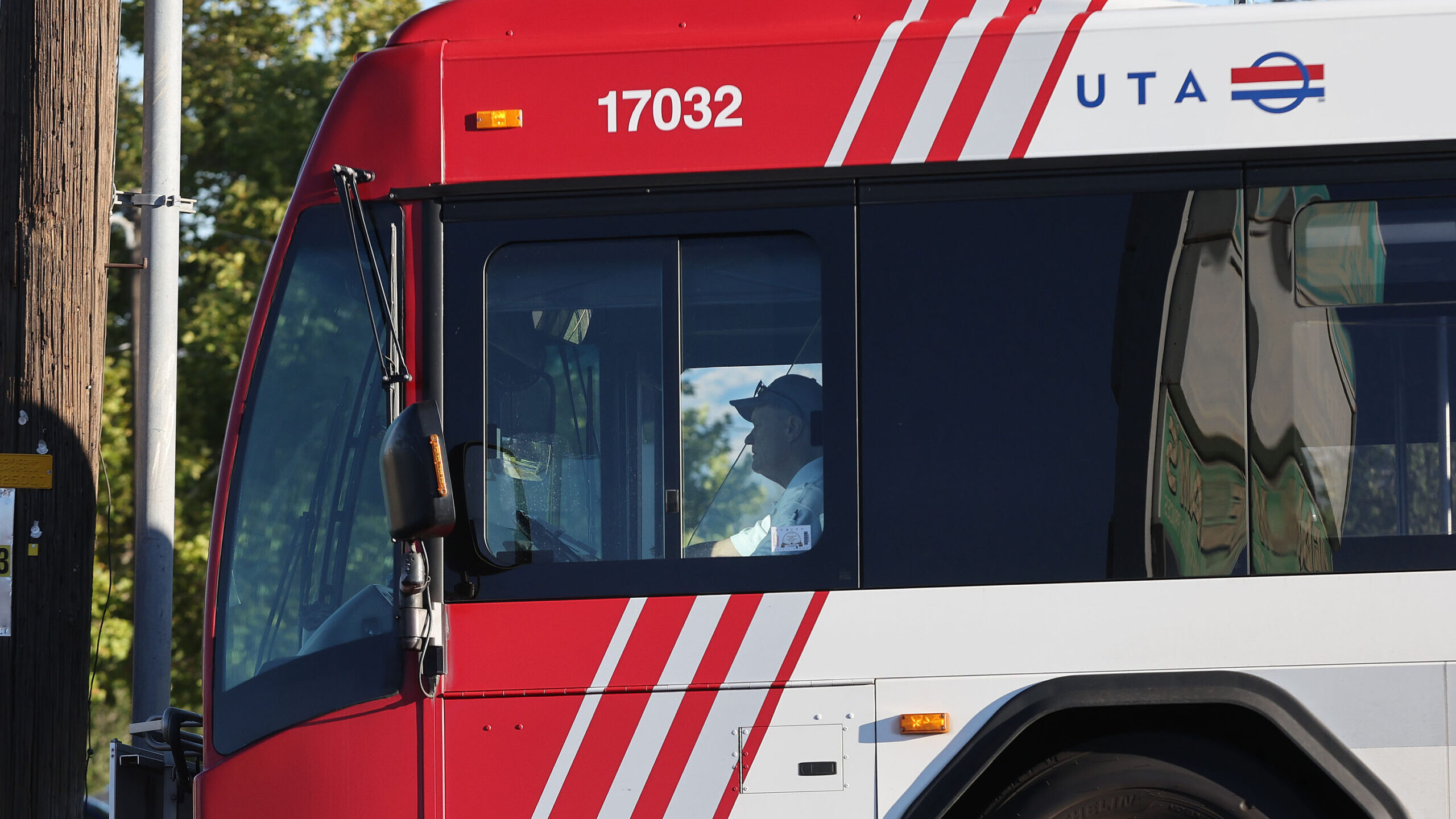How the Iowa caucuses ‘broke down in every way possible’
Feb 12, 2020, 5:28 AM | Updated: 5:29 am

Democratic presidential candidate former South Bend, Ind., Mayor Pete Buttigieg takes a selfie with supporters after speaking at a caucus night campaign rally, Monday, Feb. 3, 2020, in Des Moines, Iowa. (AP Photo/Charlie Neibergall)
(AP Photo/Charlie Neibergall)
IOWA CITY, Iowa (AP) — Days before the Iowa caucuses, Democratic Party activist Lindsey Ellickson prepared to run her Cedar Rapids precinct by downloading the new smartphone app designed to calculate and report results.
But her planning ran into a problem: Her phone was ruined when she accidentally dropped it in the toilet. She struggled to get the app on her replacement phone and decided to call in the results instead. But it took two hours for her to report them to a party hotline overwhelmed with calls, genuine and prank.
By then, the caucuses were on their way to becoming a disaster of epic proportions. With the world waiting to learn who won the nation’s first presidential nominating contest, the Iowa Democratic Party would not release even partial results until 21 hours after residents began gathering in schools and churches to express their preferences.
When results were released in batches in coming days, they were tainted by mistakes that required corrections and apparent math errors that may never be fixed. Bernie Sanders and Pete Buttigieg have requested a recanvassing of results from dozens of precincts that they said may be erroneous and could affect the still-unresolved outcome. The party is expected to announce its next steps Wednesday.
Sorting through the wreckage isn’t just a humbling experience for the state’s Democrats — it’s also a cautionary tale. The disaster has already reshaped how Nevada will run its caucuses 11 days from now and raised questions about whether caucuses, often criticized as quaint vestiges of another political time, can survive in the modern era.
In interviews with The Associated Press, party leaders and activists described widespread missteps in planning and running one of the nation’s signature and most high-stakes political contests. They said bad decisions, technological failures and poor communications created the mess that humiliated Democrats, undermined confidence in the outcome and threatens to end the tradition of Iowa getting to pick first.
“The whole thing just broke down in every way possible,” said Pete D’Alessandro, an Iowa-based adviser to Sanders’ campaign.
Beyond the missteps, some said the caucuses were set up to fail because they had gotten too big and complicated. They blamed an arcane process for determining which candidates are viable and win delegates at each volunteer-run precinct and rule changes that looked simple on paper but may have backfired in practice.
For the first time, the party was to gather and release the number of supporters for each candidate at each site twice during the caucuses. That was in addition to calculating and releasing the number of delegates they were awarded. The change was pushed by those who wanted caucuses to be more transparent and more like elections that reward the top vote-getter. But that additional data overwhelmed party officials when the systems for reporting it failed. The reporting delay allowed both Sanders and Buttigieg to claim victory in the razor-thin race.
Noting that the numbers could still change, the AP has declined to declare a winner. The Iowa Democratic Party’s final results give Buttigieg a lead over Sanders of two state delegate equivalents out of 2,152 counted, or 0.09 percentage points. But the party’s data also show that more people caucused for Sanders during the first and second alignments at precincts.
“Caucusing is not voting, but I think that everyone just lost sight of that and just got drunk on the hoopla,” said Des Moines lawyer Grant Woodard, a longtime party activist who called the new rules “confusing as hell.” “I think so much of this has gotten out of control. We’re all somewhat to blame: the party, the activists, the media, the campaigns.”
The app that party leaders boasted would make it easier for precinct chairs to calculate delegate math and report a statewide winner within hours largely failed. Party officials ignored warnings in the days and hours before the caucuses that volunteers were struggling to download and log into the app. Many volunteers decided in advance to simply phone in the numbers.
On caucus night, party officials discovered that the data entered into the app was publishing inaccurate partial results. They halted any release of results to the public and discovered that a coding error in the software was to blame.
Party officials had promoted a phone reporting system as a reliable backup to the app, but they made a key change that turned out to be a miscalculation.
In previous cycles, organizers said the party used an Interactive Voice Response system that allowed precinct chairs to enter results using the keypads of their phones. It’s unclear why the party opted not to use that automated system this time and instead used a hotline manned by dozens of volunteers that had been a backup previously.
In another move that would backfire, the party released the hotline number in online materials weeks before the caucuses. On caucus night, it was overloaded with hundreds of precinct chairs trying to call in results and journalists trying to find out why none were being released. Callers intentionally trying to disrupt the process added to the chaos after the number was posted on social media.
“The failure of the app just set off a chain reaction of a bunch of other things that made it worse and worse as the night and ultimately days went on,” said Norm Sterzenbach, a former executive director of the Iowa Democratic Party.
Sterzenbach had been given a contract from the party to oversee the development of the reporting system for the caucuses but resigned in March 2019 to work for Beto O’Rourke’s campaign.
Amid the failure of the reporting systems, Iowa Democratic Party Chairman Troy Price made a decision that many observers call devastating and puzzling a week later. Rather than giving the public results as they trickled in and could be verified, they waited until 4 p.m. the next day to release results from 62% of precincts at once. It took two more days for all precinct results to be released.
The inexplicable delay led to rampant criticism on cable news and fed into conspiracy theories that the election results were being rigged to help Buttigieg, who declared his campaign “victorious” in the absence of results. “Mayor Cheat” trended on Twitter.
Campaign representatives say Price hung up on them during a conference call when they asked questions about the delays. At a 1 a.m. Tuesday call with reporters that lasted fewer than two minutes, Price said results would be available soon and didn’t elaborate or take questions.
“This very well may be the textbook chapter in communications classes on how not to handle crisis communications,” D’Alessandro said. “It literally was like every step along the way the wrong decision was made.”
Price has apologized and pledged an independent review.
By early Tuesday, hundreds of precincts had yet to successfully report their numbers. The party dispatched officials in the middle of the night to knock on the doors of chairs who either forgot or failed to report in. “I was unsuccessful,” said former state Rep. Nate Willems, who pounded on one sleeping volunteer’s door in rural Jones County.
Volunteers answering phones wrote down results, which were verified using photos of the caucus math worksheets and entered in a database. The manual process would later introduce embarrassing data errors, like former Massachusetts Gov. Deval Patrick performing strongly in some precincts, even after the party claimed its methodical “quality control checks” would ensure accurate results.
DNC Chairman Tom Perez went on Twitter days after the caucuses to declare “enough is enough” and demand a recanvassing — a request that he didn’t have the authority to make under the rules and that was rebuffed by state party officials.
While data entry errors were corrected, party officials said they were powerless to change errors on caucus math worksheets that led to the wrong number of delegates being awarded to candidates at other precincts. A legal opinion from a party lawyer said the caucus results certified by precinct leaders were the official outcome and could not be changed without an official recount — even if the math was wrong. Other lawyers disputed that interpretation.
Some Iowa insiders blamed the DNC for a chaotic planning process that wasted their time and effort.
The state party spent months seeking to address one of the chief criticisms of the caucuses: that too many people could not participate because of work, family obligations and disabilities. Encouraged by the DNC to increase participation, state party leaders developed a “virtual caucus” plan to allow participants to express their preferences using their phones.
The DNC’s rules and bylaws committee gave conditional approval to Iowa’s plan in June while raising some concerns. But the committee rejected the plan in late August after its security experts said the phone system could be prone to hacking.
The late rejection outraged Iowa leaders, required them to develop a new plan to hold satellite caucuses around the state and gave critics of Iowa’s leadoff position a key talking point. “Everything changed then,” said Ellickson, a member of the party’s state central committee.
While party leaders focused on the virtual caucus, the development of the reporting app seems to have been put on the back burner.
Party officials envisioned having Microsoft update the app that it developed for the 2016 caucuses and was successfully used to report results. But the app would need a major overhaul to handle the party’s new rules, and the company expressed reservations about getting involved this cycle.
Price said the party conducted a bidding process for the smartphone technology as required by its delegate selection plan and hired Shadow Inc., a startup founded by veterans of Hillary Clinton’s 2016 campaign. Price, who also worked on that campaign, said Monday the independent review would look into the awarding of the contract.
Shadow had already been hired by the Nevada Democratic Party to develop a reporting app for its caucus — a relationship that was ended after Iowa’s meltdown. Shadow was also providing other software programs to presidential campaigns, including Buttigieg’s, which would later fuel unfounded conspiracies. In fact, Joe Biden’s campaign had dropped the firm’s technology over cybersecurity concerns.
Shadow’s contract in Iowa wasn’t finalized until the fall, and its identity was a closely guarded secret. The company, which had never developed an election reporting system, had just months to create one and have it tested by security experts and users in the field.
Experts who reviewed the IowaReporterApp since the caucus breakdown say it was technically flawed, appeared rushed and was likely subjected to inadequate security and stress testing.
Some precinct chairs got a link to test the app about two weeks before the caucus. The program wasn’t available through the App Store, which triggered a security warning when users tried to download it. Some were scared away then.
Others struggled to navigate a complicated two-factor authentication system required for security purposes and get logged in. Still others got error messages when they tried to report results or send in a required photo of them.
“My hunch is there was not preparation for total failure of the app network,” said party activist John Norris, who worked to help the party verify precinct results. “Once you start having failure, it creates doubt and that creates pressure on the backup system. And it snowballed downhill from there.”
___
Catch up on the 2020 election campaign with AP experts on our weekly politics podcast, “Ground Game.”













